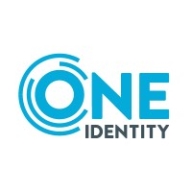

One Identity Active Roles and Oracle Identity Governance compete in the identity management category. One Identity Active Roles appears to have the upper hand in deployment ease and customer support, while Oracle Identity Governance provides robust features for complex environments.
Features: One Identity Active Roles offers role-based access control, integration with directory environments like SQL and Office 365, dynamic group management, temporal group membership, and workflow automation. Oracle Identity Governance provides strong identity lifecycle management, integration with Oracle applications, extensive connectors, and a rich authorization engine.
Room for Improvement: One Identity Active Roles could improve web console customization, add more built-in workflows, and offer better documentation. Users also seek more scripting support and cloud integration. Oracle Identity Governance is complex, with a steep learning curve, and struggles with non-Oracle system integration. It could benefit from UI improvements and enhanced cloud offerings.
Ease of Deployment and Customer Service: Both products support on-premises deployment. One Identity Active Roles is easier to deploy, offering responsive technical support and developer assistance. Oracle Identity Governance requires significant resources and expertise, with good but more frequently needed support due to its complexity.
Pricing and ROI: One Identity Active Roles uses a user-based licensing model that is expensive but delivers significant ROI through automation. Oracle Identity Governance is costly, particularly for smaller enterprises, with substantial implementation expenses. It provides robust risk management, yet total cost of ownership is a key consideration.
One Identity Active Roles provides excellent reporting and auditing functionality, allowing administrators to track permissions, actions, and responsibilities effectively.
It has saved 90% of the time compared to before.
One Identity has a theme that they want the right people to have the right set of access, and this is what they are able to provide with their tool.
It is able to save time and money as everything is automated: user access provisioning, password policy management, and reporting.
Everything is good, and I can give One Identity technical support a rating of ten.
One Identity's support is great.
I rate customer service and support as a seven because, although they are helpful when needed, there can be delays in responding to tickets and finding necessary fixes.
The team is not very knowledgeable and takes too long to respond.
While they are familiar with me, the team is not large enough, which impacts their availability.
The technical support from Oracle is excellent.
It is very beneficial for large and complex environments.
If you are a major enterprise customer, it is a matter of scaling out on resources with more memory, disk, and CPU power.
The solution is highly scalable, with a scalability rating of nine.
There were no major problems with One Identity Active Roles.
Regarding stability, One Identity Active Roles is mostly stable.
We haven't had any glitches.
A way to connect to various directories and integrate with cloud directories would be beneficial.
Enhancements to the console are also necessary because it is more confusing than the web interface.
The user interface needs to be more modern and scalable.
Incorporating AI to reduce manual work would be beneficial.
Oracle Identity Governance is a thick, heavy application and has fewer application connectors compared to SailPoint, which offers a large number of out-of-box connectors, making integration easier.
Improvements could include making Oracle Identity Governance a simpler plug-and-play product.
It is quite expensive, costing more than 50 euros per identity.
I think our total was in the seven-figure range for a couple of years of service.
The pricing is high.
They sell the solution cheaply, but setting up and maintaining it becomes very expensive.
If you want to implement it at full scale, it's not an entry-level product; it's an enterprise-class product and it is expensive.
Oracle Identity Governance is very expensive.
It's improved our security posture. It has limited access to our crown jewels, where all our identities lie within Active Directory.
It helps in removing custom Active Directory delegation, which enhances security by eliminating unnecessary privileges, addressing identity-based breaches by reducing the number of Active Directory delegations.
Dynamic groups are also one of the best features, eliminating the need to add or manage members manually.
The reporting function and Identity Audit function help with compliance, as they provide access review certification, segregation of duties, and a reporting feature.
The features I find most effective in Oracle Identity Governance include size and scale management, which is good for large organizations.
The solution's capabilities in provisioning, de-provisioning, terminations, and transfers are excellent.
| Product | Market Share (%) |
|---|---|
| One Identity Active Roles | 5.6% |
| Oracle Identity Governance | 4.6% |
| Other | 89.8% |

| Company Size | Count |
|---|---|
| Small Business | 9 |
| Midsize Enterprise | 4 |
| Large Enterprise | 19 |
| Company Size | Count |
|---|---|
| Small Business | 22 |
| Midsize Enterprise | 11 |
| Large Enterprise | 46 |
One Identity Active Roles is a highly regarded solution for Active Directory (AD) security and account management. One Identity Active Roles will enhance group, account, and directory management while eradicating the need for manual processes. The end result is a significant increase in the overall speed, efficiency, and security of the organization.
Using One Identity Active Roles, users can:
Managing accounts in AD and Azure AD can be tremendously challenging; continually keeping these important systems safe and secure presents an even greater challenge. Traditional tools can be inefficient, error-prone, and very disjointed. In today’s robust marketplace, organizations are finding it somewhat difficult to keep pace with the constant access changes in a hybrid AD ecosystem. Additionally, there are significant security issues to consider (government compliance, employee status/access changes, and other confidential business requirements). And, of course, there is a requirement to properly manage Active Directory and Azure Active Directory access in addition to managing all the other numerous SaaS and non-Windows applications that organizations use today.
Users can easily automate all of these tedious, mundane administrative tasks, keeping their systems safe and error-free. Active Roles ensures users can perform their job responsibilities more effectively, more efficiently, and with minimal manual intervention. Active Roles was created with a flexible design, so organizations can easily scale to meet your organizational needs, today, tomorrow, and in the foreseeable future.
Reviews from Real Users
A PeerSpot user who is a Network Analyst at a government tells us, “It has eliminated admin tasks that were bogging down our IT department. Before we started using Active Roles, if one of our frontline staff members deleted a user or group, it could take several hours to try to reverse that mistake. Whereas now, the most our frontline staff can do is a deprovision, which just disables everything in the background, but it's still there. We can go in and have it back the way it was two minutes later. Instead of it taking two hours, it only takes two minutes.”
Becky P., Sr Business Analyst at George Washington University, shares, “In addition, with the use of workflows and the scheduled tasks, we were able to automate and centrally manage a number of the processes as well as utilize them to work around other product limitations. Those include, but are not limited to syncing larger groups, which have 50,000 plus members, to Azure AD. We sync up to Azure AD using ARS. If we had not already had ARS in place, it would have been impossible for us to have done so in the time period we did it in. We did it in under six months. ARS probably saves us at least two weeks out of every month. It's reduced our workload by 50 percent, easily.”
Oracle Identity Governance (OIG) is a very versatile and robust enterprise identity management solution that offers functional and business performance competence by supplying centralized administration and total automation of identity and client provisioning events throughout the organization and user applications. Oracle Identity Governance monitors the complete identity and role process to satisfy rapidly changing business and complex compliance regulations and quickly delivers critical reporting and compliance capabilities.
Oracle Identity Governance is designed to easily identify which users have approved access to specific applications and other resources. It does this by using processes such as segregation of duties (SOD), role-based access control (RBAC), certifications, and access requests.
Oracle Identity Governance Features
Reviews from Real Users
“The one thing that stands out was the automatic sign-out when an employee goes on vacation. Identity Governance can monitor when an employee goes on vacation and returns. We use this feature to automatically disable all the employee's accounts when they go on vacation, and they're automatically enabled when they come back. We can also automatically delete the employee's accounts when they're dismissed. Oracle has a model that gives you precise reports. It's called Crystal, and it's similar to JasperReports, so we can derive reports from this database. “ - Fabio L., Partner at a tech services company.
“We are using Oracle Identity Manager for the management of the identity cycle. We have a human resources system as a source, and we have some custom-made applications as a destination of the changes in the identities. - A PeerSpot user who is a Project Manager at a government “
We monitor all User Provisioning Software reviews to prevent fraudulent reviews and keep review quality high. We do not post reviews by company employees or direct competitors. We validate each review for authenticity via cross-reference with LinkedIn, and personal follow-up with the reviewer when necessary.